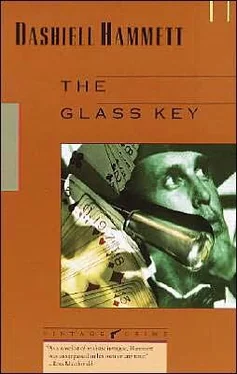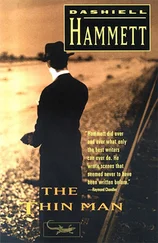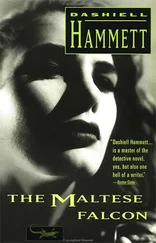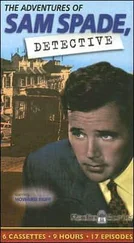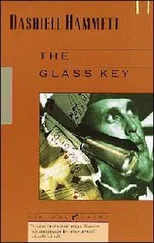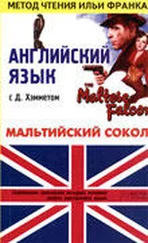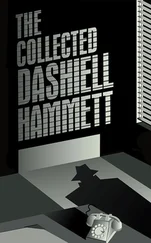She put a hand to her throat. Otherwise she did not move. She did not speak.
He said: "The Senator won't give us much trouble, luckily. He doesn't care about anything—not you or his dead son—as much as he does about being re-elected and he knows he can't do that without Paul." He laughed. "That's what drove you into the Judith role, huh? You knew your father wouldn't split with Paul—even if he thought him guilty—till the election was won. Well, that's a comforting thing to know—for us."
When he stopped talking to light his cigar she spoke. She had taken her hand down from her throat. Her hands were in her lap. She sat erect without stiffness. Her voice was cool and composed. She said: "I am not good at lying. I know Paul killed Taylor. I wrote the letters."
Ned Beaumont took the burning cigar from his mouth, came back to the lyre-end sofa, and sat down facing her. His face was grave, but without hostility. He said: "You hate Paul, don't you? Even if I proved to you that he didn't kill Taylor you'd still hate him, wouldn't you?"
"Yes," she replied, her light brown eyes steady on his darker ones, "I think I should."
"That's it," he said. "You don't hate him because you think he killed your brother. You think he killed your brother because you hate him."
She moved her head slowly from side to side. "No," she said.
He smiled skeptically. Then he asked: "Have you talked it over with your father?"
She bit her lip and her face flushed a little.
Ned Beaumont smiled again. "And he told you it was ridiculous," he said.
Pink deepened in her cheeks. She started to say something, but did not.
He said: "If Paul killed your brother your father knows it."
She looked down at her hands in her lap and said dully, miserably: "My father should know it, but he will not believe it."
Ned Beaumont said: "He ought to know." His eyes became narrower. "Did Paul say anything at all to him that night about Taylor and Opal?"
She raised her head, astonished. "Don't you know what happened that night?" she asked.
"No."
"It hadn't anything to do with Taylor and Opal," she said, word tumbling over word in her eagerness to get them spoken. "It—" She jerked her face towards the door and shut her mouth with a click. Deep-chested rumbling laughter had come through the door, an( the sound of approaching steps. She faced Ned Beaumont again, hastily, lifting her hands in an appealing gesture. "I've got to tell you," she whispered, desperately earnest. "Can I see you tomorrow?"
"Yes."
"Where?"
"My place?" he suggested.
She nodded quickly. He had time to mutter his address, she to whisper, "After ten?" and he to nod before Senator Henry and Paul Madvig came into the room.
2
Paul Madvig and Ned Beaumont said good-night to the Henrys at half past ten o'clock and got into a brown sedan which Madvig drove down Charles Street. When they had ridden a block and a half Madvig blew his breath out in a satisfied gust and said: "Jesus, Ned, you don't know how tickled I am that you and Janet are hitting it off so nice."
Ned Beaumont, looking obliquely at the blond man's profile, said: "I can get along with anybody."
Madvig chuckled. "Yes you can," he said indulgently, "like hell."
Ned Beaumont's lips curved in a thin secretive smile. He said: "I've got something I want to talk to you about tomorrow. Where'll you be, say, in the middle of the afternoon?"
Madvig turned the sedan into China Street. "At the office," he said. "It's the first of the month. Why don't you do your talking now? There's a lot of night left yet."
"I don't know it all now. How's Opal?"
"She's all right," Madvig said gloomily, then exclaimed: "Christ! I wish I could be sore at the kid. It'd make it a lot easier." They passed a street-light. He blurted out: "She's not pregnant."
Ned Beaumont did not say anything. His face was expressionless.
Madvig reduced the sedan's speed as they approached the Log Cabin Club. His face was red. He asked huskily: "What do you think, Ned? Was she"—he cleared his throat noisily—"his mistress? Or was it just boy and girl stuff?"
Ned Beaumont said: "I don't know. I don't care. Don't ask her, Paul."
Madvig stopped the sedan and sat for a moment at the wheel staring straight ahead. Then he cleared his throat again and spoke in a low hoarse voice: "You're not the worst guy in the world, Ned."
"Uh-uh," Ned Beaumont agreed as they got out of the sedan.
They entered the Club, separating casually under the Governor's portrait at the head of the stairs on the second floor.
Ned Beaumont went into a rather small room in the rear where five men were playing stud poker and three were watching them play. The players made a place for him at the table and by three o'clock, when the game broke up, he had won some four hundred dollars.
3
It was nearly noon when Janet Henry arrived at Ned Beaumont's rooms. He had been pacing the floor, alternately biting his finger-nails and puffing at cigars, for more than an hour. He went without haste to the door when she rang, opened it, and, smiling with an air of slight but pleasant surprise, said: "Good morning."
"I'm awfully sorry to be late," she began, "but—"
"But you're not," he assured her. "It was to have been any time after ten."
He ushered her into his living-room.
"I like this," she said, turning around slowly, examining the old-fashioned room, the height of its ceiling, the width of its windows, the tremendous mirror over the fireplace, the red plush of the furniture. "It's delightful." She turned her brown eyes towards a half-open door. "Is that your bedroom?"
"Yes. Would you like to see it?"
"I'd love to."
He showed her the bedroom, then the kitchen and bathroom.
"It's perfect," she said as they returned to the living-room. "I didn't know there could be any more of these left in a city as horribly up to date as ours has become."
He made a little bow to acknowledge her approval. "I think it's rather nice and, as you can see, there's no one here to eavesdrop on us unless they're stowed away in a closet, which isn't likely."
She drew herself up and looked straight into his eyes. "I did not think of that. We may not agree, may even become—or now be—enemies, but I know you're a gentleman, or I shouldn't be here."
He asked in an amused tone: "You mean I've learned not to wear tan shoes with blue suits? Things like that?"
"I don't mean things like that."
He smiled. "Then you're wrong. I'm a gambler and a politician's hanger-on."
"I'm not wrong." A pleading expression came into her eyes. "Please don't let us quarrel, at least not until we must."
"I'm sorry." His smile was apologetic now. "Won't you sit down?"
She sat down. He sat in another wide red chair facing her. He said: "Now you were going to tell me what happened at your house the night your brother was killed."
"Yes," issuing from her mouth, was barely audible. Her face became pink and she transferred her gaze to the floor. When she raised her eyes again they were shy. Embarrassment clogged her voice: "I wanted you to know. You are Paul's friend and that—that may make you my enemy, but— I think when you know what happened—when you know the truth— you'll not be—at least not be my enemy. I don't know. Perhaps you'll— But you ought to know. Then you can decide. And he hasn't told you." She looked intently at him so that shyness went out of her eyes. "Has he?"
"I don't know what happened at your house that night," he said. "He didn't tell me."
She leaned towards him quickly to ask: "Doesn't that show it's something he wants to conceal, something he has to conceal?"
He moved his shoulders. "Suppose it does?" His voice was unexcited, uneager.
Читать дальше
